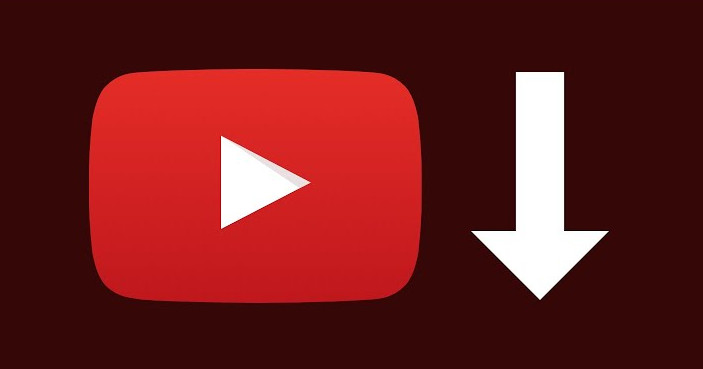Late last week, the @RIAA sent a legal threat to @Github, claiming that the popular (and absolutely lawful) tool #youtubedl (which allows users to download Youtube videos for offline viewing, editing and archiving) violated Section 1201 of the #DMCA.
#1201">https://pluralistic.net/2020/10/24/1201-v-dl-youtube/ #1201
1/">https://pluralistic.net/2020/10/2...
#1201">https://pluralistic.net/2020/10/24/1201-v-dl-youtube/ #1201
1/">https://pluralistic.net/2020/10/2...
Even by the heavy-handed standards of the RIAA - a monopolist& #39;s "association" dominated by only three members - this was extraordinary. The law in question derives much of its efficacy from its vagueness, which chills software developers from risking its severe penalties.
2/
2/
#DMCA1201 is an "anti-circumvention" law, banning the distribution of tools that bypass "effective means of access control" for copyrighted work, with a $500k fine and a 5-year sentence for a first violation.
3/
3/
Thus 1201 gives companies the power to felonize any action, even lawful ones. All you need to do is design a product so that using it in ways that you dislike requires bypassing "access controls" and presto! Your preferences are laws - "Felony contempt of business-model."
4/
4/
That& #39;s how Apple makes it a crime for me to write an app and sell it to you for your Iphone without giving Apple 30% of the purchase price. It& #39;s how Medtronic makes it a crime to fix its ventilators. It& #39;s how HP makes it a crime to refill a printer cartridge.
5/
5/
For all its centrality to modern commerce, 1201 has seen precious few cases litigated to judgment, so its contours remain fuzzy. That works to companies& #39; advantage. They know that risk-averse competitors, security researchers and investors steer wide to avoid violating it.
6/
6/
Who wants to risk a wrong guess about the lawfulness of your activities that can land you in prison for 5 years?
7/
7/
There have been moments when the RIAA& #39;s rage brought us close to litigating key features of 1201, but cooler heads prevailed and they surrendered rather than putting their theories in front of a judge and risking a narrowing of 1201.
https://www.eff.org/cases/felten-et-al-v-riaa-et-al7/
8/">https://www.eff.org/cases/fel...
https://www.eff.org/cases/felten-et-al-v-riaa-et-al7/
8/">https://www.eff.org/cases/fel...
In threatening youtube-dl, RIAA is risking a lot. Like what is an "effective means of access control"? There& #39;s an argument that goes, "If I can bypass it, how was it & #39;effective& #39;?" That was tried in the @2600 case over Decss, and it didn& #39;t fly.
https://www.eff.org/effector/15/14
9/">https://www.eff.org/effector/...
https://www.eff.org/effector/15/14
9/">https://www.eff.org/effector/...
But while the courts were reluctant to decide how stout an access control must be to acquire statutory protection, they were unsympathetic to the arguments of the defunct file-sharing tool Aimster, which used Pig Latin to "encrypt" its filenames.
10/
10/
They argued that RIAA enforcers violated 1201 by "decrypting" them. This was quickly dismissed by courts, putting a floor under what "effective" means: "stronger than Pig Latin, weaker than Decss."
https://news.slashdot.org/story/01/03/06/1448236/aimster-uses-pig-latin-encryption-to-defeat-riaa
11/">https://news.slashdot.org/story/01/...
https://news.slashdot.org/story/01/03/06/1448236/aimster-uses-pig-latin-encryption-to-defeat-riaa
11/">https://news.slashdot.org/story/01/...
The "access controls" that youtube-dl bypasses are (AFAIK) somewhere within those two bounds - basically a lot of obfuscation, but not encryption. If this goes to trial, "obfuscation" methods could end up being fair game for circumvention.
12/
12/
The other thorny question RIAA is raising here is standing - they& #39;re arguing that since some of their members& #39; works are restricted by Google& #39;s access controls, then they have the right to sue over circumvention, even if Google doesn& #39;t mind.
13/
13/
If this question is ruled on, then it could go badly for RIAA irrespective of the ruling. If the court rules that only the creator of an access-control can invoke DMCA 1201, the list of potential aggressors under 1201 dwindles to a mere handful.
14/
14/
If the court rules that the RIAA DOES have standing, then that means that every single rightsholder whose works are implicated by an access control would ALSO have standing.
15/
15/
If the day comes that the RIAA& #39;s members want to break with a Big Tech music company (like Youtube, say!), and authorize their customers to jailbreak their music and take it with them to a rival service, any other rightsholder with a file on Youtube could stop this.
16/
16/
Indeed, under this theory, there may be no way of EVER authorizing a circumvention - you& #39;d need cooperation from every implicated rightsholder and the access-control& #39;s creator. The RIAA& #39;s members strongly value their own self-determination and this could really hurt them.
17/
17/
Will this go to trial? It& #39;s hard to say. Certainly, the RIAA has firehosed around so many complaints that they& #39;ve created a cohort of potential defendants who might be willing to take their chances in court.
18/
18/
As @torrentfreak reports, before hitting Github, RIAA sent out notices in Germany - to Uberspace (the youtube-dl project& #39;s host) and to former project maintainer Philipp Hagemeister (no longer involved).
https://torrentfreak.com/riaas-youtube-dl-takedown-ticks-of-developers-and-githubs-ceo-201027/
19/">https://torrentfreak.com/riaas-you...
https://torrentfreak.com/riaas-youtube-dl-takedown-ticks-of-developers-and-githubs-ceo-201027/
19/">https://torrentfreak.com/riaas-you...
And @natfriedman, Github& #39;s CEO, joined the developers& #39; IRC channel to offer support (he told Torrentfreak, "We want to help the youtube-dl maintainers defeat the DMCA claim so that we can restore the repo").
https://twitter.com/t3rr4dice/status/1320660235363749888
20/">https://twitter.com/t3rr4dice...
https://twitter.com/t3rr4dice/status/1320660235363749888
20/">https://twitter.com/t3rr4dice...
The notice seems to have radicalized the company: "We are thinking about how GitHub can proactively help developers in more DMCA cases going forward, and take a more active role in reforming/repealing 1201."
Interestingly, Github& #39;s owner, @Microsoft, is an RIAA member.
21/
Interestingly, Github& #39;s owner, @Microsoft, is an RIAA member.
21/
In the meantime, copies of the youtube-dl sourcecode have proliferated as developers and activists have mirrored it in protest of the RIAA& #39;s heavy hand.
22/
22/
DMCA 1201 is unconstitutional: that& #39;s an argument @eff is making in its lawsuit on behalf of @matthew_d_green and @bunniestudios, which seeks to overturn the law.
https://www.eff.org/cases/green-v-us-department-justice
23/">https://www.eff.org/cases/gre...
https://www.eff.org/cases/green-v-us-department-justice
23/">https://www.eff.org/cases/gre...

 Read on Twitter
Read on Twitter


